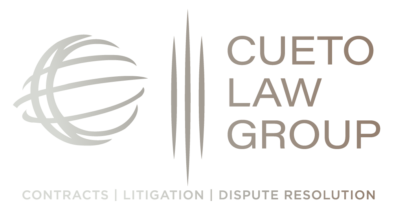
Statute of limitations copyright infringement is a law that limits the amount of time that a person can file a lawsuit against another person. If you are considering entering into a contract, it is important to know the copyright’s basic rules and regulations. Here are some essential points you should know about copyright infringement.
What is the Copyright Statute of Limitations?
The statute of limitations for copyright infringement is the time limit for a person to file a lawsuit in court after discovering their copyright has been infringed.
If you believe you’ve been infringed, then contacting a Florida copyright lawyer is the first step you should take, as they can help you determine if you have a valid case and can also assist you in filing a lawsuit. Taking the time to understand the concept and details of the statute of limitation on copyright infringement and all it entails is important because it can mean the difference between recovering damages or losing them.
How Long Does the Statute Of Limitations for Copyright Infringement Last?
If you discover that your copyright has been infringed, you have three years from the date of infringement to file a civil claim and five years for a criminal case. This allows you three years from the date you discover that your copyright has been infringed to file a lawsuit.
The statute of limitations for copyright infringement is in place to protect the rights of copyright holders and people from being harassed or forced to live in constant fear of being sued. It also allows the infringer to correct their actions before they are taken to court.
Alternatively, in the cases of trademark infringement statute of limitations, the statute of limitations can vary. While there is no federally set trademark infringement statute of limitations, at the state level, the statute of limitations can range between three and four years from the date of the first infringement upon the trademark.
When filing a lawsuit for copyright infringement, you must be able to prove that the infringer had knowledge of your copyright and that they were able to take the necessary steps to avoid infringing your copyright.
The Florida statute of limitations for copyright infringement can seem confusing because several different statutes of limitations can apply, exceptions that can apply, and so on. So, seeking the help of a Florida copyright lawyer from Cueto Law Group can help you understand the law and how it applies to your situation.
How Many Copyright Limitations are There?
When it comes to copyright limitations, three primary limitations can apply to copyright infringement cases. These limitations include:
Fair Use
Fair Use is a limitation designed to allow people to use the copyrighted material of others without their permission for certain purposes.
For example, under the fair use limitation, a newspaper can use a quote from an article without obtaining permission from the copyright holder. Similarly, a teacher can use copyrighted material in their classroom without obtaining permission.
First Sale Doctrine
The First Sale Doctrine is a limitation that allows people to sell, rent, or give away the original copies of copyrighted material without obtaining permission from the copyright holder. For example, if you buy a book, you are allowed to sell, rent, or give away the original copy without obtaining permission from the copyright holder. The only exception is if you purchased a copy from the copyright holder.
Digital Millennium Copyright Act
The Digital Millennium Copyright Act (DMCA) is a federal law limiting the liability of websites that host user-generated content. It is designed to protect websites from being liable for user-generated content that infringes the copyright of others. This can be very important, especially for websites hosting user-generated content like YouTube, Facebook, and Instagram.
Are There Fair Use Exceptions to Copyright?
As far as exceptions to copyright are concerned, four main exceptions considerations could affect a copyright infringement case:
The Purpose and Character of the Use
The first exception affecting a copyright infringement case is the purpose and character of using copyrighted materials. This fair use exception allows people to use small portions of copyrighted material for specific purposes.
For example, a book reviewer can quote a small portion of a book to provide a review. Similarly, a teacher can use small portions of copyrighted material for teaching.
The Nature of the Copyrighted Work
The second exception that can affect a copyright infringement case is the nature of the copyrighted work. This is also a fair use exception designed to allow people to use small portions of copyrighted material for specific purposes.
For instance, in Sony Corp. of America v. Universal City Studios, Inc., the Supreme Court stated that copying information from a news broadcast may have a “stronger claim” to fair use than copying something from a major motion picture. That’s because a news broadcast is typically considered informational and educational, whereas a major motion picture is purely for entertainment purposes.
The Amount and Substantiality of the Portion Used
The third exception affecting a copyright infringement case is the amount and substantiality of the portion used. This fair use exception allows people to use small portions of copyrighted material for specific purposes.
For example, if a review quotes a small portion of the book being reviewed, it will likely have a stronger claim of fair use than if it reproduces the entire text.
The Effect of the Use on the Potential Market for or Value of the Copyrighted Work
The fourth exception that can affect a copyright infringement case is the effect of the use on the market for or value of the copyrighted material. This fair use exception allows people to use small portions of copyrighted material for certain purposes.
Say a review quotes a small portion of the book they are reviewing—it will likely have a stronger claim of fair use than if it duplicates the entire book. This is because quoting a small portion of the book is less likely to affect the market or value of the book.
What Does “Last Act” of Infringement Mean?
The last act of infringement can refer to the most recent act in a series of infringing acts. For example, if someone copied your work, then sold it to someone else, the sale is the last act of infringement.
The last act of infringement is typically the most important act of infringement when it comes to determining the statute of limitations for copyright infringement. This can be very important for determining when the statute of limitations for copyright infringement runs.
Say someone uses your photo in a printed newspaper. The use is the last act of infringement, and the statute of limitations for copyright infringement runs from the date the newspaper was published.
However, if someone uses your photo on a website, the last act of infringement would be the last time the photo was used on the site. That would mean that the statute of limitations for copyright infringement would run from the date the image was removed from the site, as that is when the act of infringement ended.
Is there a Separate DMCA Statute of Limitations?
There is no separate statute of limitations for copyright infringement under the Digital Millennium Copyright Act (DMCA). That means the statute of limitations for copyright infringement is the same as the statute of limitations for any other copyright infringement claim.
Copyright Infringement Statute Of Limitations Rules
Limitation rules refer to the rules the court will use to determine the date the statute of limitations for copyright infringement runs. It can be difficult to determine when the statute of limitations runs, so you’ll want to consult a lawyer with Cueto Law Group for help.
There are three types of limitation rules:
The Discovery Rule
The most common limitation rule is the discovery rule. Under this rule, the statute of limitations runs from the date the plaintiff discovered or should have discovered the infringement.
The Injury Rule
Alternatively, the injury rule states that the statute of limitations runs from the last act of infringement. The injury rule is more common in cases of continuing infringement, such as a website that continues to infringe after a cease-and-desist letter. In claims for ongoing infringement, the statute of limitations runs from the last day of infringement.
Separate-Accrual Rule
The separate-accrual rule states that the statute of limitations runs separately for each act of infringement. The separate-accrual rule is rarely used in copyright infringement cases because it is difficult to prove.
Need Help With a Statute of Limitations Copyright Infringement Case?
Copyright infringement is a serious crime, and if you’re the victim of copyright infringement, you may be entitled to compensation for your losses. However, filing a copyright infringement case on your own is difficult and unadvised.
Instead, you should file a copyright infringement case with the help of an experienced Florida copyright lawyer. At Cueto Law Group, our lawyers have the experience and resources necessary to file a successful copyright infringement case.
For help with statute of limitations cases, contact Cueto Law Group today.
Our Final Thoughts on the Statute of Limitations on Copyright Infringement
It is essential to understand the statute of limitations for copyright infringement and the rules that determine when the statute of limitations runs. This will help you better understand your rights and when you should file a copyright infringement case.
FAQs
What are the 3 Limitations to Copyright?
Three copyright limitations could impact a copyright infringement case. These include the fair use, first sale doctrine, and Digital Millennium Copyright Act. When determining whether or not a copyright infringement case will go to trial, the court will take each of these possible limitations into consideration.
What are the 4 Fair Use Exceptions to Copyright?
There are a total of four exceptions the court will consider. These exceptions include the purpose and character of the use, the nature of the copyrighted work, the amount/substantiality of the portion used, and the effect the use will have on the potential market or value of the work.
How Do You Prove Copyright Breach?
You may prove that the defendant infringed on your copyright by providing the court with a copy of the original work and a copy of the infringing work. You may also provide the court with screenshots or other proof of where the infringing content is located.



